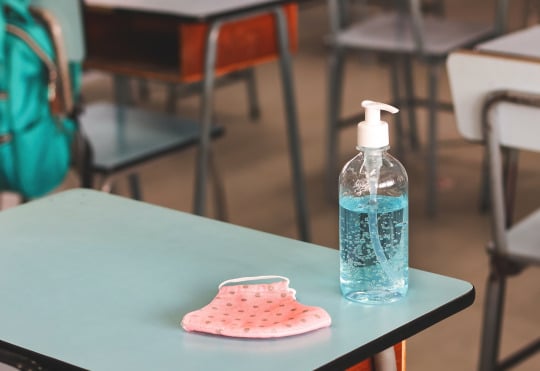
If only classroom seating changes were the biggest disruption facing teachers and students this fall. During a recent interview Ellen Sanin, Post-Secondary Coordinator for St. Anthony School Programs, mentioned the switch from group tables to tray tables as an example of a physical COVID-19 adjustment. Within the pair of classrooms at Duquesne University’s Fisher Hall that serve as her home base, the flexibility of individual seating allows for social distancing. Like every other teacher, the far bigger adjustment she’s currently dealing with involves the drastic reduction in enrichment opportunities for her students.
At eight locations in the Pittsburgh area, St. Anthony School Programs offer inclusive education for students age 5 -21 with primary diagnosis of Autism Spectrum Disorder, Down Syndrome, and Intellectual Disabilities. At the Duquesne University site where she has worked for the past five years, Ellen is responsible for teaching gym, technology skills, and job preparedness to 29 students between the ages of 18 and 21.
Although the disruptions she and her students faced in the wake of the mid-March lock down are hard to imagine, Ellen’s summary of the turbulent time is understated. “Like everyone else, we went to remote learning, but with a population with particular challenges to using the technology – some who can’t read, and some who are nonverbal.” This fall, in-person teaching has resumed, with instruction for three of her students restricted to on-line.
In former years, post-secondary students and instructors in the St. Anthony Program routinely visited as many as 20 different Pittsburgh sites as part of job preparedness training. Current COVID-19 restrictions, Ellen explained, have reduced these field trip destinations to a handful of locations on the Duquesne University campus, the Allegheny County Court House, and a life skills and home skills training apartment in Squirrel Hill. “We made regular visits to Carnegie Library locations, but libraries, like lots of other places are operating under new guidelines.”
Because Ellen in also a veteran museum educator, with deep experience teaching summer camp programs, the interview closed with a question about her insight into parallels between the students she works with on a daily basis and those she has taught during summer. “The main difference is age, of course, but the similarities in interests are remarkable. One of my current students is fascinated with dinosaurs. He would have loved being in a dinosaur class.”
Patrick McShea works in the Education and Visitor Experience department of Carnegie Museum of Natural History. Museum employees are encouraged to blog about their unique experiences and knowledge gained from working at the museum.
Related Content
Harriet Tubman Was a Naturalist
